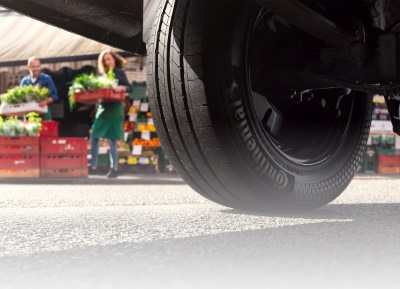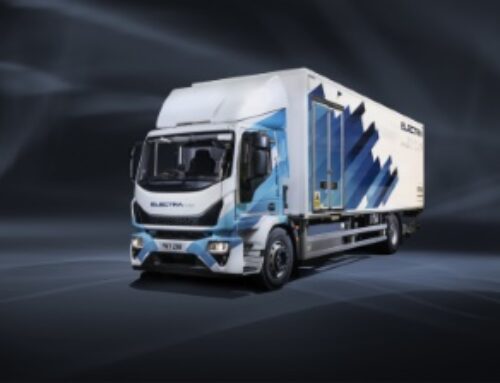Tyre maintenance tips for LCV
 Continental Tyres has offered guidance on some key areas of tyre maintenance for LCV operators.
Continental Tyres has offered guidance on some key areas of tyre maintenance for LCV operators.
The company warns that the use of illegal van tyres remains an issue for the sector; it cites statistics gathered by the UK tyre safety charity TyreSafe, as part of its 2023 Tread Depth Survey, which reveal that almost 18 per cent of van tyres were found to be below the 1.6mm legal tread depth limit at the point of replacement.
“Although they may look similar at a glance, a van tyre is specifically engineered for the work it needs to carry out,” said Steve Howat, general manager, technical services at Continental Tyres.
“Not only could it be unsafe to fit a car tyre to a van, but it could also be illegal. A major difference between car and van tyres relates to operating requirements which include the tyre’s load rating – the gross weight that the tyre has been graded to support, durability in both mileage and robustness and inflation requirements. In many cases, the whole purpose of an LCV is to carry heavier, bulkier payloads than would be suitable for a car. The exact same should be said for a van’s tyres, too.”
A dedicated van tyre is optimised for performance and efficiency in what is a very specific use case, says Steve.
“Continental’s VanContact Ultra range, for example, has sidewall protection built in, as well as different tread compounds and pattern designs with usually greater original tread depths to help operators extract the maximum service life from the tyre. Alternatively, the VanContact Eco has been developed for maximum economy for drivers covering high miles. This tyre uses an innovative rubber compound to combine wet performance with low rolling resistance.”
He highlighted some easy steps vehicle owners and drivers can take to look after tyres.
“First and foremost, a regular visual inspection cannot be underestimated,” he advised.
 “Look for damage, especially to the sidewalls, and check for anything embedded in the tread grooves. Spotting a screw, nail or other puncture-creating object early could be the difference between an inexpensive repair or a replacement tyre. It’s also vital to check your tread depths. If your tyre tread is below 1.6mm, the tyre is not road-legal and must be changed.
“Look for damage, especially to the sidewalls, and check for anything embedded in the tread grooves. Spotting a screw, nail or other puncture-creating object early could be the difference between an inexpensive repair or a replacement tyre. It’s also vital to check your tread depths. If your tyre tread is below 1.6mm, the tyre is not road-legal and must be changed.
“A major contributing factor to premature tyre failure is underinflation. You should regularly check that your tyres are inflated to the manufacturer’s recommended pressures. Don’t just rely on your vehicle’s in-built tyre pressure monitoring system to warn you they’re low, either. Even a few PSI short of the recommendation can have an impact on tyre reliability and fuel economy.”
In addition to potentially causing premature damage to tyres and reduced fuel economy, Steve adds that low tyre pressures also make them more susceptible to picking up a puncture.
“These are just tyre-related issues – think about the cost and business implication of taking the vehicle off the road at short notice and potentially having to let customers down,” he warned.
“Continuing to use a damaged tyre may not only be illegal, but it will significantly increase the risk of a tyre blowout. A blowout happens when there is a sudden depressurisation of the tyre – a bit like popping a balloon. The forces exerted from the explosion can cause fatal injuries to anyone standing in proximity to the tyre and can easily cause a loss of vehicle control if it’s heavily loaded and travelling at speed.”
Steve recommends speaking to a trusted tyre partner or retailer for advice on which van tyre to choose.
“Explain to them how you typically use your vehicle, and they should be able to provide you with a recommendation. Continental offers a wide range of van-specific tyres, each developed with safety, durability and performance in mind. The all-purpose VanContact Ultra and efficient VanContact Eco are supplemented by all-season and winter variants, as well as our dependable Vanco range.”










